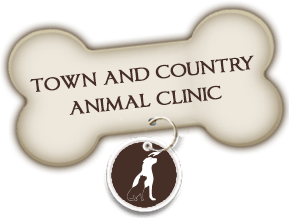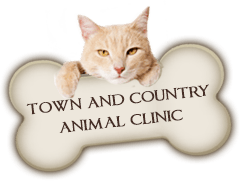Rat poison is a bait-type poison which is flavored and scented to attract rodents. Unfortunately it also attracts cats and dogs. Most rat poisons are made of a concentrated anticoagulant chemical such as brodifacoum, warfarin, bromadilone, bromethalin and diphacinone. They way these chemicals affect the animal is by causing an inability for the blood to clot. Bromethalin can cause damage to the central nervous system. If the animals clotting factors have been affected, then the smallest injury may lead to uncontrolled bleeding. It may take several days after ingesting the rat poison before your cat or dog displays any symptoms and at that point it may become fatal to your pet. That is why it is very important to treat your animal immediately after they have ingested the toxin to prevent the poison from being absorbed. It is also important that you bring in the package label so when can treat your pet properly as soon as possible.
The anticoagulants found in rat poison can interfere with the body’s recycling of vitamin K. Vitamin K is the molecule that activates the clotting factor in the blood (which causes the platelet cells in the bloodstream to clump together when bleeding occurs). After the vitamin K is used in the clotting activity, the body recycles it for later use. Since the anticoagulants prevent the body from recycling vitamin K, it will be destroyed once it is used. That is why it may take several days for your pet’s reserve of vitamin K to be depleted enough to show visible signs, such as bruising. Other symptoms include:
- Blood in the urine, vomit or feces.
- Bleeding from the rectum, nose, eyes, ears.
- Weakness and instability.
- Bruises.
- Difficulty breathing (caused by blood in the lungs).
- Swollen belly (caused by blood accumulating in the abdomen).
If the rat poison contains bromethalin, it affects your pet’s central nervous system by causing an increase in the pressure of the liquid in the skull, surrounding the brain (cerebrospinal fluid). This excess water on the brain may cause your pet to have:
- Muscle tremors.
- Seizures.
- Impaired movement.
- Lethargy.
- Loss of appetite.
If the animal ingests large amounts of rat poison the symptoms may be present sooner, but on average it takes 2 – 7 days for the symptoms to appear in your pet. Again to have a higher success rate it is important that you take your pet immediately to the veterinarian to prevent the toxin from being absorbed by your pet. It is also helpful for your veterinarian to know which type of rat poison has been ingested by your cat or dog so be sure to bring the product label with you.
Initial treatment for any type of rat poison is to induce vomiting. This may include hydrogen peroxide or special medication to cause your dog to vomit. If you cannot bring your pet immediately in to have your veterinarian induce vomiting, call the clinic and we will give you a dose over the phone based on your pet’s weight that you can administer at home. Be sure to do so in a area that is easy to clean (such as the bath tub) as this will cause projectile vomit. Depending on how much of the rat poison is brought up in the vomit, your veterinarian may also administer activated charcoal orally to prevent absorption from the GI tract. Because the two types of rat poison affect your pet differently, they are treated differently. If your pet has been suspected of ingesting the bromethalin type of rat poison, your pet may be referred to a speciality clinic where a MRI or CT scan can be performed. With the anticoagulant style of rat poison we normally recommend a blood test 3 days after the ingestion to test your pet’s ability of their blood to clot. If the results are low then we will begin an regimen of vitamin K injections since your pet will have a depleted supply. We also recommend a blood test one month later to ensure your pet’s blood is still clotting properly.
Many people inquire about giving their cat or dog over-the-counter human vitamin K products. This is not recommended as the tablets do not contain an effective therapeutic level to combat the rat poison. They also often contain other vitamins or ingredients that should not be given to pets, especially if they are suspected of ingesting rat poison.
The best way to prevent your dog or cat from ingesting rat poison is to impede their access to the toxin. If you do choose to use these chemicals, store them high off the ground so if your dog does enter the garage accidentally, they cannot reach the chemicals. It is harder to hide chemicals from your cat so this may require being stored in a cupboard that can be locked. Also pets can be affected indirectly by eating a mouse or rat that has been poisoned. Be sure to dispose of the unwanted rodents very carefully as to prevent your pet from having access to the carcass.
If you have any other questions, or are concerned that your pet may have ingested rat poison, please call us at (519) 250-0099.






